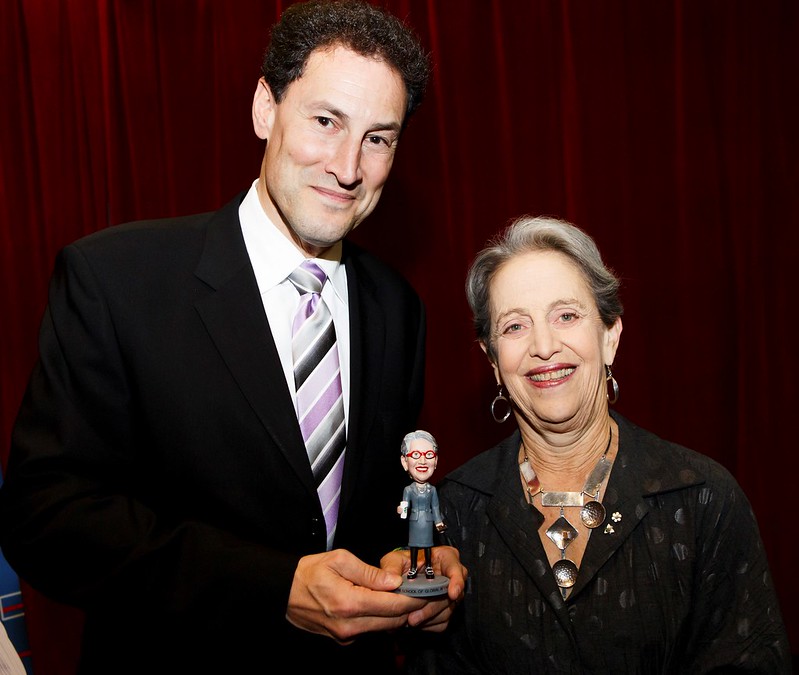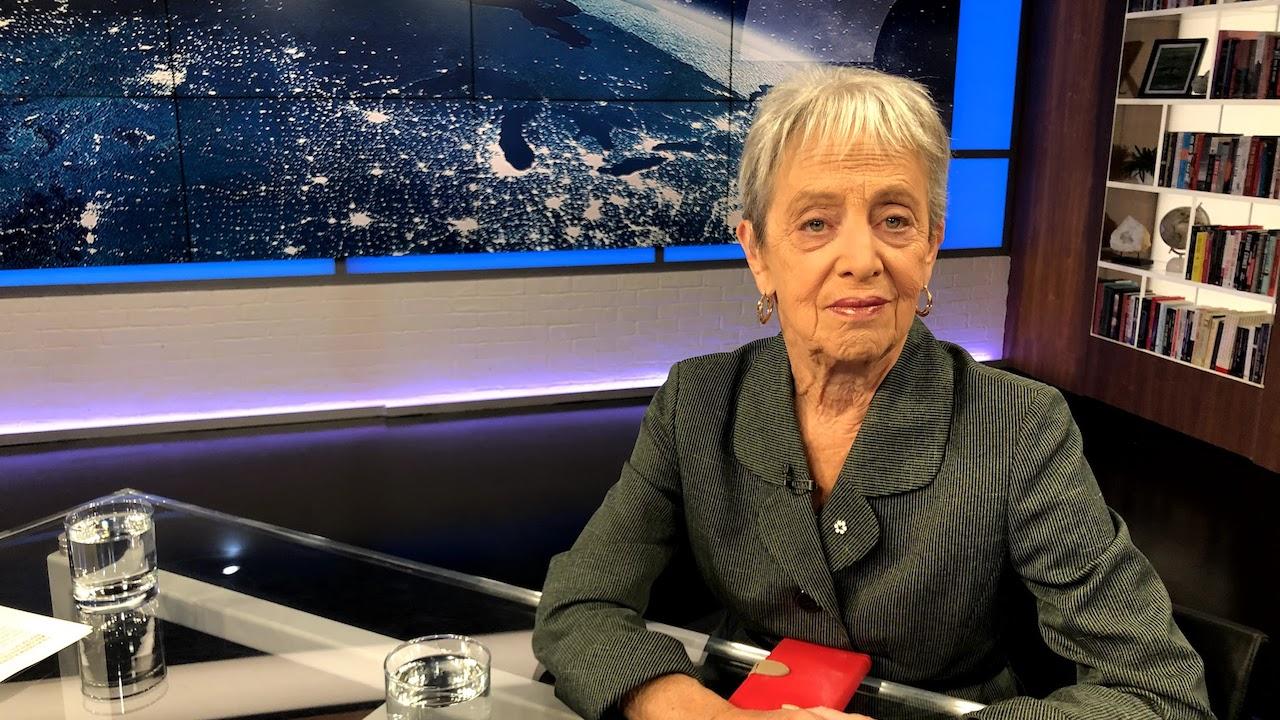A little more than four decades ago, one of the great debates in politics was whether Ronald Reagan had the mental acuity at the perfectly ancient age of 69 to be President of the United States. A lot of people worried about the fact that, if he won, Reagan would enter the White House as the oldest person ever to win the presidency.
Those same concerns were raised a decade later in Canada, when Jean Chrétien ran to become prime minister. Chrétien was known as “Yesterday’s Man” by critics who feared he was also too old for the country’s top political job, even though he was only 59.
Despite the concerns, Reagan won back-to-back landslides, and Chrétien won three consecutive majority governments.
The “he’s too old for the job” complaint got another good workout a little over two years ago. Joe Biden — almost a decade older than Reagan when he walked into the Oval Office — is now more than 80 years old. And let’s be blunt: Biden does shuffle when he walks in a way that evokes, well, an old man. But, certainly, based on what we recently saw on Parliament Hill in this country, you’d be hard-pressed to say that, because of his age, he’s manifestly unfit for the office he holds. Whether you agree or disagree with him on the issues, it seemed to most observers that Biden still had plenty of game.
These prejudices about age just don’t seem to go away. I can’t tell you how many times over the years people thinking of entering politics in Canada have told me, “I’d love to do it, but I fear I’m just too old.” Someone said it to me a couple of weeks ago, and she was in her 50s.
Which brings us to Janice Stein, who, like Biden, just turned 80. And she’s disturbed by the ageism she sees all over.
Stein has done many things in her storied career. But, as far as TVO viewers are concerned, she’s the moderate, sensible, usually (but not always) correct founding director of the Munk School of Global Affairs and Public Policy who’s been making regular appearances on the public broadcaster for three decades.

The author with Janice Stein and a Stein figurine created to mark her departure as director of the Munk School of Global Affairs and Public Policy. (Courtesy of Steve Paikin)
She was part of a regular weekly trio of foreign-affairs analysts on Studio 2 for a dozen years. In fact, Stein and her friends became such a popular part of the show, they got their own spinoff program, Diplomatic Immunity, which lasted for seven years.
Then, when The Agenda signed on in 2006, she continued to make regular appearances, whenever the times called for it.
Of course, Stein is best known by thousands of young people as one of the country’s most respected foreign-affairs professors. She started teaching an incredible 55 years ago, has spent the last 42 years at the University of Toronto, and continues to teach graduate students to this day.
Even at 80 — an age at which many people understandably want to slow things down — Stein doesn’t seem to know how to down-gear. She still travels all over the world, attending conferences and getting briefed on the latest goings-on. (When we spoke for this column, she had to duck out of a conference she was attending in Washington.) That may explain why, when Mélanie Joly was appointed Canada’s foreign minister in October 2021, Stein got the call to co-chair a special committee of outside experts to help the minister develop the country’s Indo-Pacific strategy.
“The discussions were so good,” Stein recalls. “They were so collegial. And we fed new ideas into the process.”
Because she’s been around for so long, it’s not at all unusual for her to walk into a meeting or conference and see her former students now in positions of influence. (For example, Ontario’s finance minister, Peter Bethlenfalvy, is a former Stein student.)
Stein has never hidden her age, but she hasn’t exactly advertised it either, over concerns that our society tends to want to put octogenarians out to pasture.
“There’s an assumption that every 80-year-old is the same,” she laments. “We’re not, and we have to make that point. It’s ferocious out there. You can’t discriminate against anyone anymore except older women.”
Stein finds that particularly frustrating given that, by all accounts, she just had one of her best years professionally. Besides co-chairing the advisory panel for Joly, she also wrote a 20,000-word paper on how the U.S. government is managing the risk of nuclear escalation in Ukraine.
“It was a complex, technical, preoccupying paper that I wrote for people at the highest levels,” she says. “I think it’s one of the best things I’ve done, and it draws on years and years of watching and thinking and knowing.”
Because I still see Stein regularly, I can attest to the fact that she is still in remarkably good physical condition, despite her well-known dislike of exercise.
“I don’t like boring routines,” she admits. “I tried using a trainer, but we developed an adversarial relationship!” Instead, she walks everywhere, including across a spread-out U of T downtown campus. She also eschews the elevator at her downtown condo, taking the stairs instead. And she lives on the 10th floor.
Over the years, Stein has had the chance to leave Canada for what could be considered more exotic postings. I well remember her telling me years ago that she had just received a call from a highly ranked American university offering her a Chair, a much higher salary, a much easier teaching schedule, and a much bigger budget for research.
“On all the material indicators, it was a better job,” she now says.
It sounded irresistible. But she turned it down.
“I didn’t want to leave this country,” she says. “I owe everything to this country.” That’s a reference to the fact that, had authorities not allowed her grandfather to emigrate to Canada a century ago, Stein and many other members of her family might inevitably have been swept up by the Holocaust.
“My family and I would not be here,” Stein says. “I have always wanted to give back to this country that opened its doors to my family.”
As I think our conversation is ending, she goes back to the age-discrimination issue one more time.
“I’m surprised at how much there still is,” she says. “And how much more is directed at senior women than men. It’s subtle but real discrimination.”
Agenda segment, September 6, 2013: Advice to your 23-year-old self
Sometimes, she says, it’s the little comments — assumption by younger people, for example, that she couldn’t possibly be up on newer trends, such as ChatGPT.
“It pushes you to be self-aware,” she says. “I spend a lot of my time with young, critical people, and I have to constantly learn new things to keep up.”
“We talk about diversity,” Stein says. “But that should include age diversity as well. We need irreverent young people in the room to push the boundaries. But you also need older people who can say, ‘I’ve seen this movie before, and I know how it ends.’”
She’s lived a rich, stimulating life. She has two children (Isaac and Gabriel) and now grandchildren as well. But no one gets through life scott free. Stein’s husband, Michael, who was a political-science professor at McMaster University and U of T, spent five years struggling with corticobasal degeneration.
When Michael’s condition worsened, Stein insisted he remain at home, in familiar and loving surroundings, until his death in January 2020. They were married for 55 years.
“It was really hard, that’s all I can say.” Stein now seems a bit lost for words. “I can honestly say that my work got me through that time.”
She obviously has fewer tomorrows than yesterdays in her professional life. As a result, she frequently gets question she doesn’t love: “How much longer are you going to keep teaching?”
“I still feel as strongly about things today as I did 40 years ago,” she says. “But, like anyone past 65 years old, you have to hold yourself to account, and I do. I have to be mindful that my performance meets the same standards today on academic research and publications as it has throughout my career. As long as you’re doing that in ways that match your past, then it’s an enriching experience for everybody.”
Last night, Stein was one of five notable Canadians honoured by the Public Policy Forum think-tank. She’s got the Order of Canada and the Order of Ontario. But she’s not resting on her laurels.
“I feel a sense of urgency for Canada to be better,” she says. “It’s a tough world. Strategy and execution really matter. There is so much more to do.”


